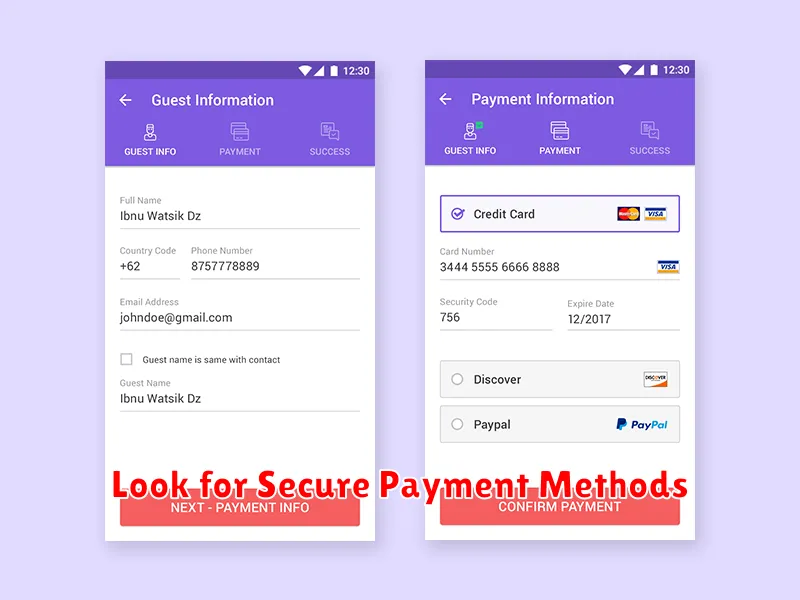Planning a dream vacation or a crucial business trip? Don’t let hotel booking scams turn your anticipated getaway into a nightmare. Hotel booking scams are becoming increasingly sophisticated, targeting unsuspecting travelers with fraudulent websites, fake deals, and phishing tactics. Protecting yourself from these scams is paramount to ensuring a smooth and enjoyable travel experience. This article will provide you with essential tips and strategies to scam-proof your hotel booking process, allowing you to book with confidence and avoid falling victim to these deceitful practices. Learn how to identify red flags, verify legitimacy, and secure your reservations, so you can focus on what truly matters – enjoying your trip.
From deceptive advertising to hidden charges, the risks associated with hotel booking scams are substantial. Losing your money is bad enough, but the disruption to your travel plans can be even more devastating. This guide will empower you with the knowledge and tools necessary to navigate the hotel booking process safely and effectively. We will delve into the common scams you might encounter, providing practical advice on how to avoid them. By understanding the tactics employed by scammers and implementing the recommendations presented here, you can confidently scam-proof your hotel booking and safeguard your trip from unforeseen complications.
Common Hotel Booking Scams
Third-Party Booking Site Scams: Fake websites mimicking legitimate booking platforms can trick you into entering your personal and financial information. Always double-check the website address and look for secure connection indicators.
Phishing Emails and Smishing Texts: Be wary of unsolicited emails or text messages offering incredibly low prices or free stays. These messages often contain links to fraudulent websites designed to steal your information.
Bait-and-Switch Tactics: Some scammers advertise rooms with amenities or views that don’t exist. Upon arrival, you may be offered a lesser room at a higher price or be told the advertised room is unavailable.
Fake Hotel Representatives: Scammers may contact you posing as hotel staff, claiming there’s a problem with your reservation and requesting updated payment information. Contact the hotel directly through verified channels to confirm any such claims.
Hidden Fees: While not always a scam, some third-party websites may not disclose all fees upfront, leading to a higher-than-expected final price. Carefully review the terms and conditions before booking.
Book Through Verified Platforms Only
One of the most effective ways to avoid hotel booking scams is to book exclusively through verified platforms. These platforms have established reputations and security measures in place to protect consumers. They often offer secure payment gateways and verified hotel listings, reducing the risk of encountering fraudulent activities.
Look for well-known travel agencies, hotel chains’ official websites, or reputable online travel agents (OTAs). These platforms typically have verification processes for the hotels they list and provide customer support channels if issues arise. Booking directly with the hotel is also a generally safe option.
Be wary of unfamiliar websites or platforms offering incredibly low prices that seem too good to be true. These deals often lure unsuspecting travelers into scams. Research the platform thoroughly before making any reservations. Look for reviews and testimonials from previous customers to gauge their legitimacy. Avoid booking through social media ads or clicking on links from unsolicited emails, as these can be deceptive.
Look for Secure Payment Methods

When booking a hotel online, prioritize secure payment methods. Look for websites that use HTTPS, indicated by a padlock icon in the address bar. This signifies that the connection between your browser and the website is encrypted, protecting your financial information.
Credit cards generally offer better fraud protection than debit cards. If a fraudulent transaction occurs, it’s typically easier to dispute the charges and get your money back with a credit card. Consider using a virtual credit card number for an added layer of security. These temporary numbers mask your actual credit card information, reducing the risk of your details being stolen.
Be wary of websites that only accept wire transfers or unconventional payment methods like cryptocurrency. These can be difficult to trace and often lack buyer protection. If something goes wrong with your booking, you’re unlikely to recover your funds.
Avoid making payments directly to individuals, especially through peer-to-peer payment apps. These methods offer limited recourse if there’s a problem with the booking. Book through reputable websites or directly with the hotel using their official payment channels.
Read Reviews Carefully Before Confirming
Thoroughly examining reviews is a crucial step in scam-proofing your hotel booking. Reviews provide valuable insights from previous guests, offering a glimpse into the actual experience rather than just the marketing promises.
Pay attention to recurring themes. A few negative reviews might be outliers, but a consistent pattern of complaints about cleanliness, hidden fees, or misleading descriptions should raise red flags. Focus on reviews that mention aspects important to you, such as Wi-Fi reliability, noise levels, or accessibility.
Look beyond the overall star rating. Read the actual text of the reviews to understand the specifics of what guests liked or disliked. Consider the source and date of the reviews. Are they from verified guests? Are they recent and relevant?
Be wary of overly positive or generic reviews that lack specific details. These could be fake reviews designed to inflate the hotel’s rating. Compare reviews across multiple platforms to get a more balanced perspective.
Call Hotels to Confirm Your Reservation
While online booking offers convenience, a direct call to the hotel can add an extra layer of security. Confirm your reservation details directly with the hotel staff. This simple step can help verify the legitimacy of your booking and identify any potential discrepancies or unauthorized changes.
When you call, provide your booking confirmation number and review the details including your check-in and check-out dates, room type, and the total cost. Discrepancies could indicate a problem with the third-party booking site or even a more serious issue like a scam.
Calling the hotel also allows you to inquire about specific hotel policies, amenities, and any ongoing promotions that might not be clearly listed on third-party websites. This direct communication can ensure a smoother check-in process and help avoid unexpected surprises upon arrival.
Avoid Deals That Look Too Good
If a hotel deal seems unbelievably low, it probably is. Scammers often lure victims with incredibly cheap rates to steal personal information or money. Thoroughly research average prices for similar hotels in the same location. If a deal significantly undercuts the market, proceed with extreme caution.
Compare prices across multiple booking platforms. A drastically lower price on one obscure website should raise a red flag. Trustworthy travel agencies and booking sites typically offer competitive rates, but not prices that seem impossibly low. Be wary of unfamiliar websites or unsolicited emails advertising unbelievable discounts.
Check Terms for Cancellations and Refunds
Before confirming any hotel reservation, thoroughly review the cancellation and refund policies. Cancellation policies can range from flexible to strict, often impacting the amount of your refund. Pay close attention to deadlines for cancellations to avoid penalties.
Look for information about non-refundable rates. While these may seem attractive due to lower upfront costs, they offer little to no flexibility if your travel plans change. Understand what constitutes a valid reason for a refund under the hotel’s policy. Some hotels may offer waivers for documented emergencies, while others maintain stricter guidelines.
Consider travel insurance as an added layer of protection. While not a replacement for understanding the hotel’s policy, it can provide coverage for unforeseen circumstances that cause trip cancellations or interruptions, potentially reimbursing you for non-refundable bookings. Ensure you understand the terms and conditions of the travel insurance policy itself before purchasing.

